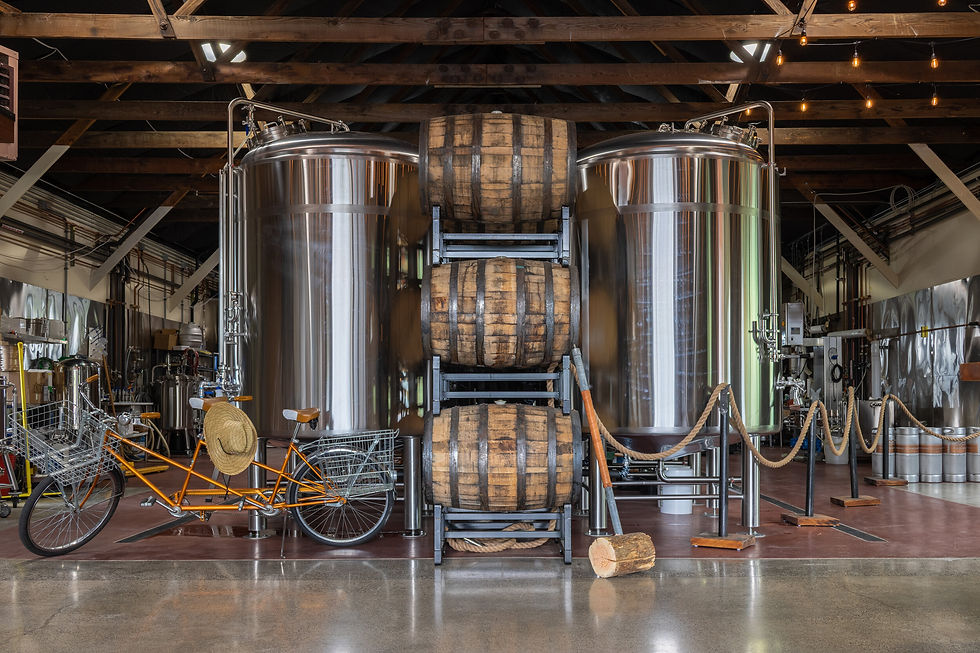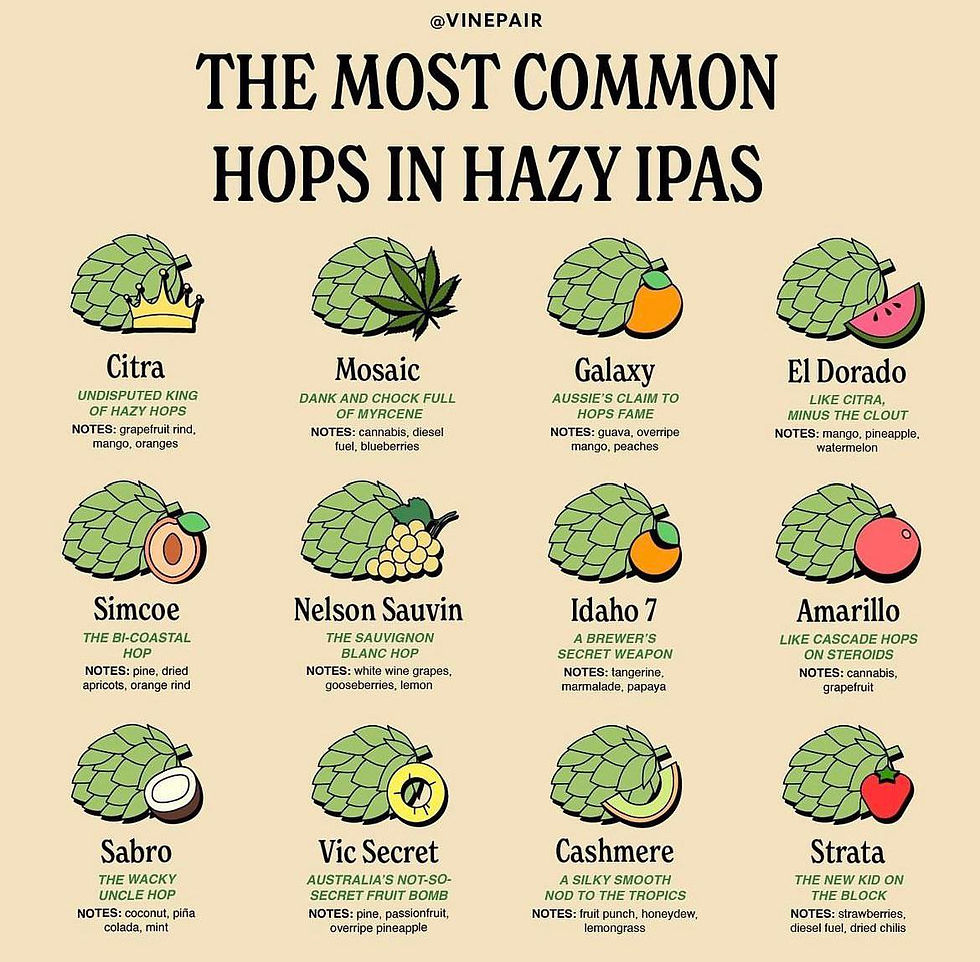Craft beer - a term that's thrown around a lot, but what does it really mean? With so many brewers and brands claiming the title, it's time to dive deep into what truly defines craft beer. As a passionate beer enthusiast, I've watched the craft beer revolution unfold with a mix of excitement and, increasingly, concern. What started as a rebellion against bland, mass-produced lagers has become a buzzword co-opted by marketing teams. So, let's cut through the foam and get to the heart of what craft beer really means, and decode the essence of what makes a beer craft. If you are more interested in checking out the best brewers rather than knowing about how they craft a fine brew, check out my blog showcasing some of the best craft breweries across the globe.

Small Batches, Big Flavors: The Soul of Craft Brewing
The term small-batch means that each batch of beer is produced in limited quantities. This allows brewers to focus on quality and make adjustments on the fly, rather than sticking to a rigid recipe. It's about craftsmanship, where each batch might be slightly different, reflecting the brewer's latest inspiration. In my opinion, craft beer isn't just about taste—it's about intention. It's about brewers who wake up every day thinking not "How can we make more?" but "How can we make better?" These are the mad scientists of the beer world, working in small batches that allow for experimentation and precision.

According to the Brewers Association, a craft brewery produces less than 6 million barrels per year, and they must be independently owned. But does a small batch guarantee a quality product? Not always. Craft is about the passion that goes into every bottle, the artistry, and the desire to create something truly special. Even though the Brewers Association defines a 6 million barrels annual limit to get the "Craft Brewery" label, most true craft breweries pump out far less. We're talking about operations where the brewer might be the same person who delivers kegs to local bars. That's the level of personal touch I'm looking for in my craft beer.
A Symphony of Styles and Flavours
Craft beer, unlike mass-produced lagers, is a celebration of brewing artistry and experimentation. What sets craft beer apart is the creativity and diversity in styles. From hoppy IPAs to rich Stouts, each beer is a labor of love. For example, West Coast IPAs are known for their hoppy bold bitterness with citrus, pine, or tropical notes. New England IPAs(NEIPA) focus on a juicy, hazy profile with tropical fruits like mango or passionfruit. Porters bring rich, roasty flavors like chocolate and coffee. Sour ales deliver tart, fruity notes, while Gose combines a tangy, salty taste with hints of lemon and coriander for a refreshing twist.
Unlike mass-produced beer, which often prioritizes consistency, craft brewers love to experiment, pushing the boundaries of flavor profiles. Each pint is a story of the brewer's vision and the local ingredients that make it special. In my experience, visiting various craft breweries has shown me that each one brings something special to the table. The passion behind each brew is palpable, and you can taste it in every sip.
Hops: The Spice of Beer Life
Now, let's talk hops - the floral cones added to beer during the brewing process, play a crucial role in determining its flavor profile. Hops have become synonymous with craft beer, especially in the IPA-crazed American market. But hops are so much more than just bitterness bombs. There are countless hop varieties, each with its distinct characteristics:
Bitterness: Hops contribute bitterness to the beer, balancing out the sweetness of malts.
Aroma: Hops impart a wide range of aromas, from citrus and pine to floral and tropical fruit.
Flavor: Hops can add a variety of flavors to beer, from subtle to bold.
Below is a representation of the typical amount of hops in various styles of beers

Some popular hop varieties used in craft beer include:
Citra: Known for its citrusy and tropical fruit flavors.
Simcoe: Offers pine, grapefruit, and resinous aromas.
Mosaic: Provides a complex blend of citrus, berry, and pine flavors.
Amarillo: Known for its floral and citrusy character.
Centennial: Offers a piney and citrusy aroma with a slightly bitter taste.

From the piney punch of Simcoe to the tropical notes of Citra, hops can transform a beer. Craft brewers are like chefs, using these varieties to create complex flavor profiles that mass-produced beers can't touch. It's not about how many IBUs you can cram into a bottle; it's about balance and nuance.
Separating the Wheat from the Chaff
Here's where I start to get a little heated. Walk into any liquor store, and you'll see shelves lined with "craft" beers that are about as craft as a fast-food burger. Big brewing conglomerates have been buying up smaller breweries and slapping "craft" labels on their mass-produced offerings. Also, most fine brewers who start as Artisans of Artisanal Ales eventually fall into the profit trap and lose track of creativity & experimentation. When a brewery's primary goal shifts from innovation to maximizing shareholder value, something fundamental is lost. The soul of craft beer is in risk-taking, in weird experiments that might fail spectacularly but might also create something revolutionary.
So, while the term "craft beer" has become increasingly popular, it's essential to distinguish between genuine craft breweries and those merely capitalizing on the trend. But how do we, as consumers, navigate this frothy sea of options? Here's my personal checklist:
Independent Ownership: True craft breweries are independently owned and operated. Check the Fine Print and look for "Brewed by" instead of "Brewed for" on the label.
Embrace the Local: The further a beer travels, the less likely it is to be truly craft.
Seek the New: True craft brewers are always innovating. If a brewery's lineup never changes, that's a red flag. Alefarm from Denmark is a great example of a brewer who indulges in a constant rotation of flavor.
Ingredients: Craft brewers prioritize quality ingredients(especially the hops) and experiment with various combinations of these. Ārpus, a dynamic craft brewery from Latvia, is known for its relentless experimentation with various hop varieties, creating bold and flavorful beers. They love to push boundaries by blending new and classic hops to craft unique profiles. They frequently release small-batch, hop-forward beers like DDH Hazy IPA Citra & Mosaic, combining the tropical fruit notes of Citra with the berry and piney character of Mosaic. Another popular release, Triple Dry-Hopped IPA Galaxy & Nelson Sauvin, mixes the tropical, citrus-forward Galaxy with the white wine-like and gooseberry notes of Nelson Sauvin.

Innovative brewing techniques: Craft brewers experiment with inventive techniques like Double Dry-Hopping (DDH) for intense flavors and aromas, Single Hopped brews to highlight a hop's profile, and Triple Hopped for layered complexity. They craft DIPAs and TIPAs with extra malt and hops, increasing alcohol and bold flavors beyond standard IPAs. Fuerst Wiacek, a Berlin-based brewery, is known for experimenting with such brewing techniques and creating unique hop-forward profiles.

Wrapping it up
In the end, Craft beer isn't just a drink; it's an experience shaped by passion, creativity, and a relentless pursuit of flavor. It’s the opposite of mass-produced, soulless brews. Next time you sip on a pint, take a moment to appreciate the artistry behind it
The craft beer revolution isn't over—it's evolving. And for those of us who care deeply about what's in our glass, that's something worth raising a toast to. So, the next time you're choosing a beer, look beyond the label. Ask questions, be curious, and support the true artisans who are pouring their hearts into every batch. Because when you drink real craft beer, you're not just having a beverage—you're participating in a revolution.
Cheers to that!

Comments